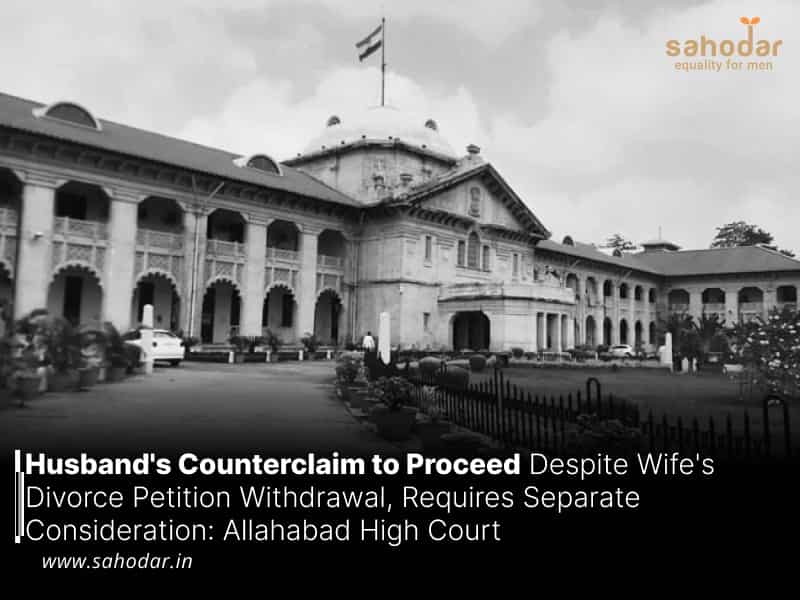The Allahabad High Court noted that despite the wife withdrawing the divorce petition, the husband’s counter-claim will continue, emphasizing the need for it to be addressed separately. An appeal was lodged by the wife, challenging the Family Court’s ruling under Section 13(1)(ia) of the Hindu Marriage Act, 1955, specifically contesting the allowance of the husband’s counter-claim to proceed independently.
The Division Bench of Justice Vivek Kumar Birla and Justice Syed Qamar Hasan Rizvi observed, “In the present case, the Withdrawal Application was not opposed on the condition clearly put forth that the counter-claim shall proceed, in other words, it is only on this condition the same was not opposed. Therefore, it is clear that there was a conditional acceptance to the withdrawal of the suit that the counter-claim shall remain alive…It is, therefore, clear that the proceedings of the counter-claim are treated as suit proceedings. The provisions of Rule 7 of Order VIII CPC provides that once the defendant relies upon several distinct grounds of defence or set-off or counter-claim founded upon separate and distinct facts, they shall be stated, as far as may be separately and distinctly.”
Advocate Aditya Bhushan Singhal represented the Appellant in court.
In this particular case, the Wife initiated a divorce petition, and in response, the Husband filed a counter-claim seeking custody of a girl child born outside of marriage under Section 23(a) of the Act. Subsequently, the Wife submitted an application for withdrawal under Order XXIII Rule (1)(3) in conjunction with Section 151 of the Civil Procedure Code, 1908, which was granted by the contested order. The Husband did not oppose the application as long as the Family Court continued to address his counter-claim.
While relying on the provisions of the CPC under Order VIII and definitions of ‘Abandonment’, ‘Counter-Claim’ and ‘Discontinue’ under the Black’s Law Dictionary and the Legal Glossary, the Court held, “The words used are absolutely clear on this issue, however, provision also reflects that cause of counter-claim shall be disclosed in the counter-claim as they are mentioned in the plaint to which the plaintiff has right to file written statement. Rule 6-C clearly provides for exclusion of counter-claim and it says that where a defendant sets up a counter-claim and the plaintiff contends that the claim thereby raised ought not be disposed of by way of counter-claim but in an independent suit, the plaintiff may, at any time before issues are settled in relation to the counter-claim, apply to the Court for an order that such counter-claim may be excluded and the Court may, on the hearing of such application make such order as it thinks fit.”
The Court noted that according to Order VIII Rule 6-E of the CPC, if the plaintiff fails to respond to a counter-claim made by the defendant, the Court has the authority to issue a judgment against the plaintiff regarding the counter-claim or make any appropriate orders concerning it. Additionally, it stated that Rule 6-G specifies that the regulations governing a defendant’s written statement shall also apply to a written statement submitted in response to a counter-claim.
Moreover, the Court referenced the precedents set forth by the Supreme Court in the case of Rajni Rani & Anr. vs. Khairati Lal & Ors. (2015), the Allahabad High Court in Hulas Rai Baijnath vs. K.B. Bass and Co. Ltd. (1963), and the Madras High Court in O.N. Raju vs. K. Krishnan (2018).

